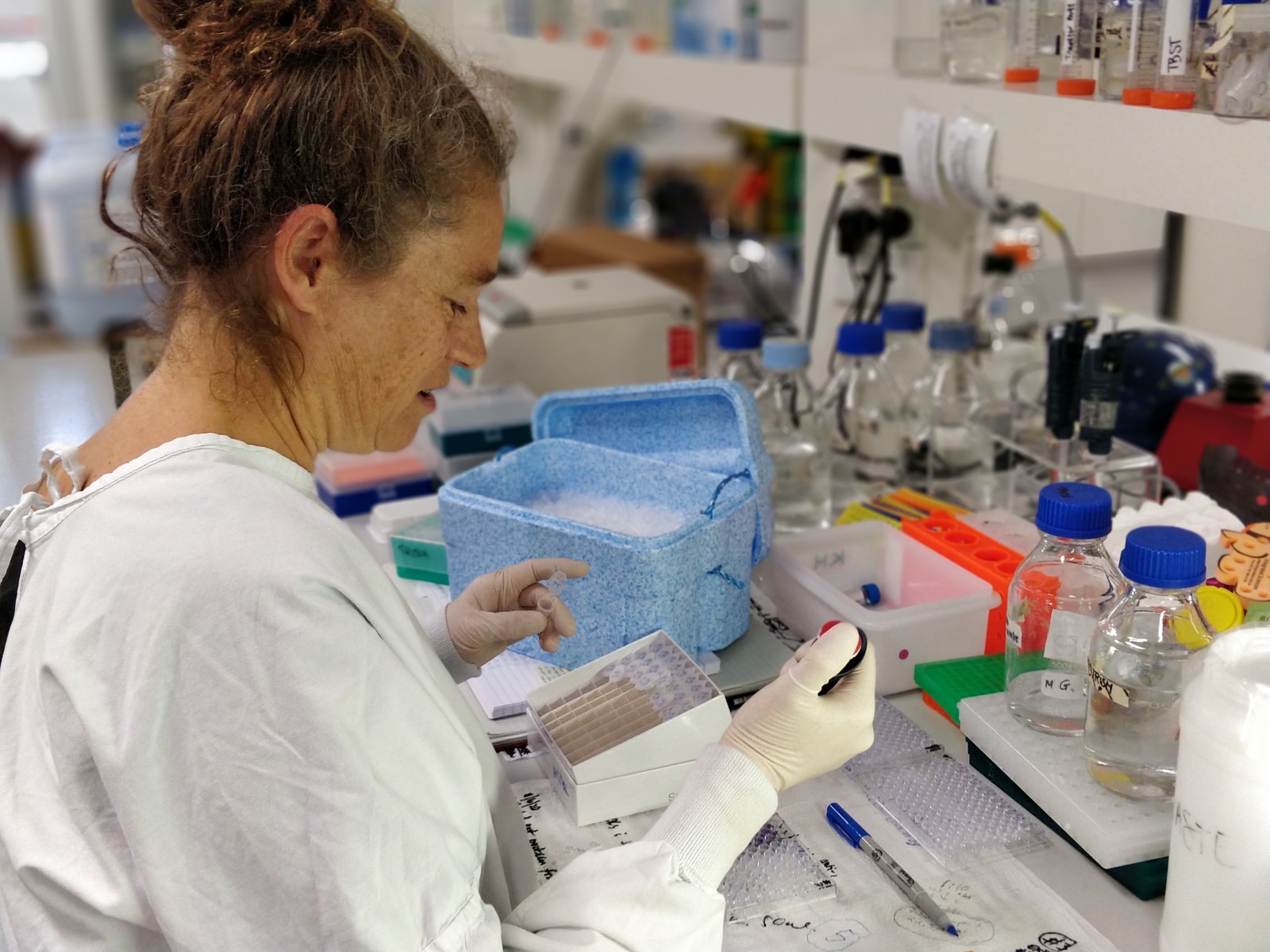Three valuable research projects have received a boost with the Hillcrest Foundation donating significant funds through the Perpetual IMPACT Philanthropy Program.
The Cancer Genetics team received $75,000 to help uncover genetic drivers for rare neuroendocrine tumours.
Investigator Dr Trish Dwight said these tumours, known as pheochromocytomas and paragangliomas affect a small percentage of the population, but can have a devastating impact, including a lower quality of life.
“The management of patients and their families is highly dependent on genetic testing, and while we know which genetic drivers influence about 70 per cent of these cases, we don’t know the genetic factors in about 30 per cent of cases,” Dr Dwight said.
“This much-needed funding will help us identify those markers and deliver far reaching benefits for patients and their families.”
$75,000 will also go towards osteoarthritis research aimed at improving treatments for the currently incurable disease.
Osteoarthritis is the number one cause of chronic pain worldwide, with 25 per cent of patients unable to carry out activities of daily life.
Professor Chris Little from the Raymond Purves Bone and Joint Research Lab said osteoarthritis is often incorrectly seen as an inevitable consequence of the wear and tear of aging.
“We know this is not the case, and like any other disease, osteoarthritis is an active biological process,” he said.
“The more we learn about the cellular and molecular processes that cause joint breakdown and pain, the more we’ll be able to identify potential treatments to halt or even reverse the impact of this condition.
“The generous funding from the Hillcrest Foundation will support our vital pre-clinical discovery research, a crucial step in the development of new treatments.”
Professor Carol Pollock has received funding for her project to help reduce kidney fibrosis.
“This research aims to identify new targets in the structure of the kidney that promote kidney scarring,” Professor Pollock said.
“We will then aim with our partners to develop treatments to limit the development of kidney disease.
“One in ten people in Australia have signs of kidney disease, and yet 90 per cent of those are unaware of its presence or devastating impact.
“End stage kidney disease costs Australia more than $12 billion each year, a significant financial burden.
“Our research could have wide reaching benefits for individuals and the broader community, and we thank the Hillcrest Foundation for their support of this important work.”
